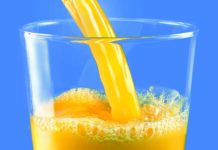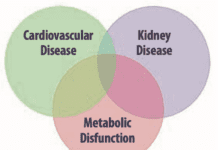Surveys have shown that a large majority of Americans are confident in the “safety, quality and effectiveness” of products marketed as “dietary supplements” (a term derived from a 1994 law that questionably grouped drug-type herbal and botanical extracts with essential vitamins and minerals). So many were shocked at the recent news that four out of five popular herbal remedies sold at some of the nation’s leading retailers didn’t contain any of the promised ingredients. The investigation by the New York State attorney general’s office charged GNC, Target, Walgreens and Walmart with selling fraudulent and potentially dangerous products and demanded the products be yanked from store shelves.
Image: Thinkstock



Instead of the herbal ingredients listed on the label, DNA testing of store-brand products often detected fillers—including wheat and legumes, possible risks for people with intolerances or allergies. For example, pills sold as ginkgo biloba, a Chinese plant touted for memory benefits, actually contained powdered radish, houseplants and wheat. Ginseng pills, which promise to boost “physical endurance and vitality,” were found to be nothing more than powdered rice and garlic.
Image: Thinkstock


But the findings aren’t so surprising to experts who have long warned that the Dietary Supplement Health and Education Act (DSHEA), pushed through Congress by the supplement industry in 1994, leaves such products dangerously under-regulated. “Under DSHEA, the manufacturer is responsible for ensuring that so-called ‘dietary supplements’ are safe before they go on the market,” explains Tufts professor Irwin H. Rosenberg, MD, editor of the Health & Nutrition Letter. “Unlike drugs, which must be proven safe and effective before the FDA allows them to be marketed and used, the FDA does not approve ‘dietary supplements’ before they reach consumers.”
In fact, DSHEA requires the FDA to show that such products are unsafe before the agency can take action to restrict their use or remove them from the marketplace. That process can often take years after an initial complaint. The FDA can challenge companies that cross the line to make specific health claims like those for prescription or over-the-counter drugs. But “dietary supplement” makers skirt such rules with carefully crafted promises—”structure-function claims” permitted under DSHEA—that their products, for example, “support immune health” (rather than claiming to cure or prevent colds and flu) or “enhance mental sharpness and support long-term brain health” (not “prevent Alzheimer’s disease”).
Even the most rule-stretching claims are always accompanied by the tiny-print disclaimer, “This statement has not been evaluated by the Food and Drug Administration. This product is not intended to diagnose, treat, cure, or prevent any disease.”
WHAT’S INSIDE: But even if such products don’t always deliver their elusive health benefits, most consumers assume that “dietary supplements” at least contain the vitamins, minerals or herbal remedies listed on the label. The FDA has gone after individual supplements found to contain dangerous ingredients, but its enforcement budget is limited. The New York case is the first time a law-enforcement agency has threatened legal action against major retailers for selling “dietary supplements” that don’t match their labeling. In addition to sending the retail chains a cease-and-desist letter, the attorney general asked them to detail the procedures used to verify the ingredients in such products.
This isn’t the first time such products have been found not to deliver what’s on the label. A 2013 study by scientists at the University of Guelph in Canada reported that a third of 44 herbal remedies tested contained no trace of the supposed main ingredient.
The problem isn’t just that consumers may not be getting what they pay for. A 2013 outbreak of hepatitis that affected at least 72 people in 16 states was ultimately traced to a tainted “supplement.” Three victims required liver transplants and one died. Last year, at a Connecticut hospital, a contaminated probiotic treatment was linked to a young patient’s death.
Between 2004 and 2013, the FDA issued 237 recalls of “dietary supplement” products, amounting to more than half of all agency recalls of “Class 1” products, which include drugs and other products with the potential to cause death or serious health problems. Such recalls don’t always stick, however: A study published in JAMA reported that most “supplements” recalled for containing dangerous or banned ingredients were still available to consumers at least six months later; others quickly returned to market under different names or with other minor changes. (For more on safety concerns, see our June 2014 Special Supplement.)
NUTRIENTS AND NEED: Americans spend $13 billion a year on products marketed as “dietary supplements,” numbering more than 65,000 different products. Nearly half of those sales—$6 billion, according to the American Botanical Council—are herbal products, for which no level of recommended intake has been set by scientific experts.
Image: Thinkstock



“The body needs certain amounts of vitamins and minerals, and recommended levels of those nutrients have been set by the Food and Nutrition Board of the Institute of Medicine of the US National Academy of Sciences,” Dr. Rosenberg says. “People who take additional amounts of these vitamins and minerals in pill form, such as vitamin D or magnesium, are supplementing their dietary intake, which may or may not be necessary, depending on the nutrient and the individual.
“But it is misleading to characterize herbal products such as ginseng, gingko biloba or saw palmetto as ‘dietary supplements,’ as they are regulated under DSHEA,” he adds. “No scientific evidence has demonstrated that you need to ‘supplement’ your intake, if any, of these herbal products.”
Conventional supplements of vitamins and minerals can also fail to fully deliver the promised contents, of course. Recent testing by the independent ConsumerLab <www.consumerlab.com>, for example, found defects in nearly 40% of multivitamins tested, wide variation in vision supplements, and deficiencies in B-complex vitamins. But products like herbal remedies are even more of a gamble: Not only are you taking a chance on what’s really in the bottle, but the scientific evidence that the products (if present) will do you any good can be scant or nonexistent. (See next page.)
So the first question to ask yourself before buying such a product, says Dr. Rosenberg, should be: “Do you really need it in the first place? There is little evidence that most botanical ‘supplements’ actually improve your health, so you can save your money.”
SEEKING ASSURANCES: If you and your physician do decide you need a vitamin or mineral supplement, how can you be sure you’re getting what you pay for? You can look for products that contain the “USP Verified” seal of the United States Pharmacopeial Convention, an independent, nonprofit organization that sets standards not only for “supplements” but also medicines and foods. Only products that have been voluntarily submitted to the USP and passed its testing can display the black-and-yellow seal. (Don’t be fooled by labels that simply use the letters “USP,” suggesting that the manufacturer claims to follow the organization’s standards but doesn’t submit products for testing.) Just a few nationwide brands, however, participate in the USP testing program—among them, Nature Made, TruNature and Kirkland Signature (Costco). For a full list, see <www.usp.org> and click on “Verification Services” under “Dietary Supplements.”
Another nonprofit, NSF International <www.nsf.org>, focuses on products for athletes but also certifies some products such as multivitamins and fish oil. Products certified by the NSF undergo:
– A label claim review to certify that what’s on the label is in the bottle
– Toxicology review to certify product formulation (but not efficacy)
– Contaminant review.
One of the chains involved in the New York case, GNC, also announced its own supplement-quality testing program in response to the attorney general’s investigation.
The fraudulent “dietary supplements” in a recent case citing some of the nation’s top retailers were all herbal products. Is it worth taking a chance on such remedies? The evidence that these popular herbal remedies actually work, according to the National Library of Medicine and the National Center for Complementary and Integrative Health (NCCIH), is scant:
Echinacea — Many scientific studies show that taking some echinacea products when cold symptoms are first noticed can modestly reduce symptoms of the common cold in adults. But other scientific studies show no benefit. Any benefit is likely to be modest.
Garlic — Some evidence indicates that taking garlic can slightly lower blood cholesterol levels; however, an NCCIH-funded study for lowering blood cholesterol levels found no effect. Preliminary research suggests that taking garlic may slow the development of atherosclerosis. Evidence suggests that taking garlic may slightly lower blood pressure, particularly in people with high blood pressure.
Ginger — Studies suggest short-term use can safely relieve pregnancy-related nausea and vomiting. Studies are mixed on whether ginger is effective for nausea caused by motion, chemotherapy or surgery. It is unclear whether ginger is effective in treating rheumatoid arthritis, osteoarthritis, or joint and muscle pain.
Ginseng — Effects vary by type. American ginseng may help diabetics control post-meal blood sugar. Panax ginseng might improve some mental performance and, in patients with COPD, lung function.
Ginkgo biloba — Most evidence shows that taking ginkgo does not improve memory or attention in older people with normal mental function, in those with mild mental problems, or in those with dementia and age-related memory loss.
Saw palmetto — The most reliable research indicates little or no benefit for symptoms of enlarged prostate (BPH) or prevention of cancer of the prostate.
St. John’s wort — Although some studies have reported benefits for depression, others have not. One large study sponsored by NCCIH found that the herb was no more effective than placebo in treating major depression of moderate severity.
Keep in mind that studies have also shown that many botanical products may interact with medications. Talk with your healthcare professional before starting to take any such herbal remedy.
























